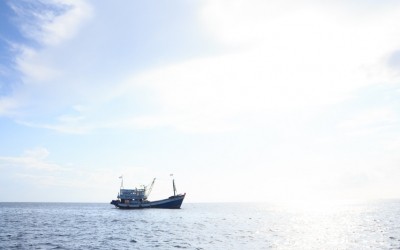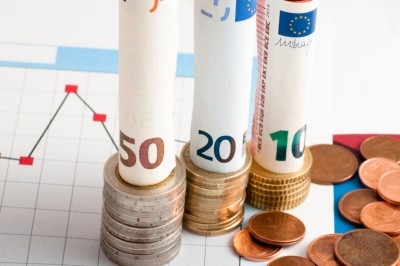No borders in the ocean: Feed and seafood trade look to get their ‘sustainability’ act together

SeaBOS officially kicked off last December, and we reported on it then.
In June, Knut Nesse, CEO of Nutreco, one of the founding members of SeaBOS, spoke at the UN Oceans Summit, reporting on the next phase of the project, where he revealed the more detailed commitments of the nine signatories.
FeedNavigator caught up with him at Nutreco’s conference, Agrivision 2017, last week to hear more.
“The project is exciting as it bridges many worlds; it connects science and business, aquaculture and fisheries, European and North American companies to Asian companies,” he told us.
Who is currently signed up to SeaBOS?
SeaBOS consists of the two biggest seafood companies by revenue, Maruha Nichiro and Nippon Suisan Kaisha, two of the biggest tuna players, Thai Union Group and Dongwon Industries, as well as the two biggest aqua feed producers, Nutreco as parent company of Skretting and Cargill Aqua Nutrition. The two biggest farmed salmon companies, Marine Harvest and Cermaq, a subsidiary of Mitsubishi, and the Japanese tuna purse seine company, Kyokuyo are also signatories.
No borders in the ocean
He said there are plenty of projects already aimed at improving the sustainability of seafood production and fish farming but the uniqueness and potential success of the SeaBOS project lies in its overarching structure – the signatories oversee the global wild capture and aquaculture value chain.
“There are no borders in the ocean. We need to work together, on a non-competitive basis, to be clear on what we want and speak with one voice,” he added.
Seafood producers from around the world, regardless of their scale of operations, have one thing in common: they all depend on healthy, functioning ecosystems. “We aim to improve and challenge each other,” he said.
The companies involved in the ocean stewardship project, SeaBOS, are now taking on roles in one of four different taskforces: “We are in the process now of assigning the metrics, the KPIs for those taskforces, which we expect to confirm at a meeting in Japan in May 2018. We will report on those officially in June next year.”
He said it is critical that the pace of the project fits the purpose. Eventually, it is hoped to engage and mobilize international regulators. “Controlling illegal, unreported and unregulated (IUU) fishing, for example, will ultimately require the intervention of governments.”
The CEOs have all given a solid commitment. Nesse said he would participate in one of the taskforces, which will require attendance at frequent meetings.
Thailand’s CP Foods may join the initiative. “They were participants in the stakeholder meeting and are considering membership,” said Nesse.
Extract from the May 2017 New York statement:
“We pledge to work diligently to eliminate IUU products and any form of modern slavery in our supply chains. We will develop a code of conduct for our own operations and for our suppliers, in order to deliver on these commitments. We will also work towards full traceability and transparency throughout our supply chains.
“We pledge to make efficient use of aquaculture feeds and to use fish feed resources from sustainably harvested stocks. We pledge to actively use and develop fish health management systems and health prevention methods before treatments.
“We will actively use and apply existing certification standards and prevent harmful discharges and habitat destruction. We call on the whole industry to do the same.
“We also pledge to work actively together with governments to improve existing regulations for fisheries, for aquaculture, and for the ocean.
“We strongly urge all governments to work together to address IUU fishing. In order for wild capture fisheries to further develop, we encourage governments to end overfishing and rebuild depleted stocks. This critically means respecting scientific advice on quotas and the sharing of best practices in regulations.
“We urge all governments to work together to improve regulations in international waters. We call on all governments to sign up to the FAO Port States Measures Agreements (PSMA) and to develop a regulatory international treaty, analogous to the PSMA, which bans all landing of IUU fish, for UN members to ratify.”








